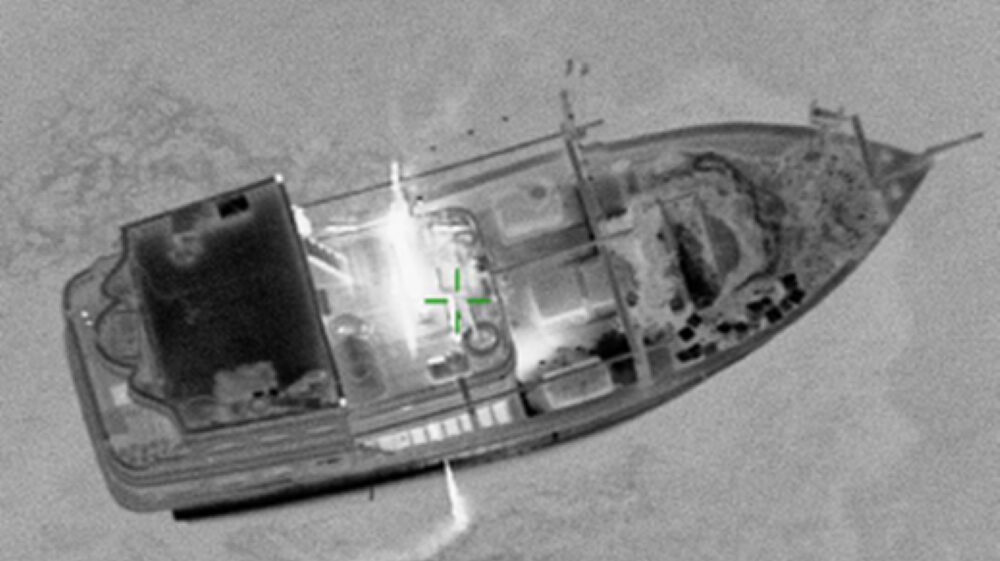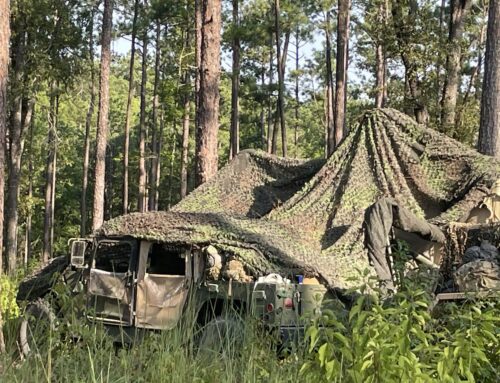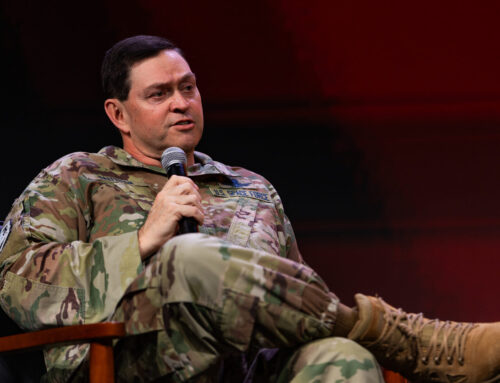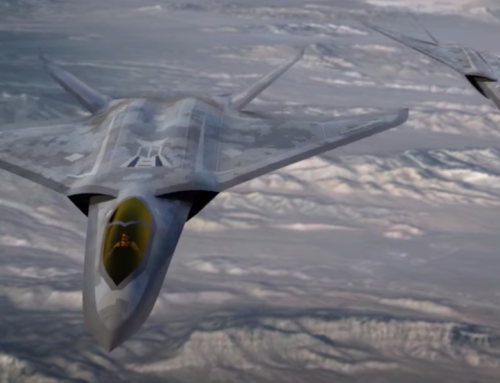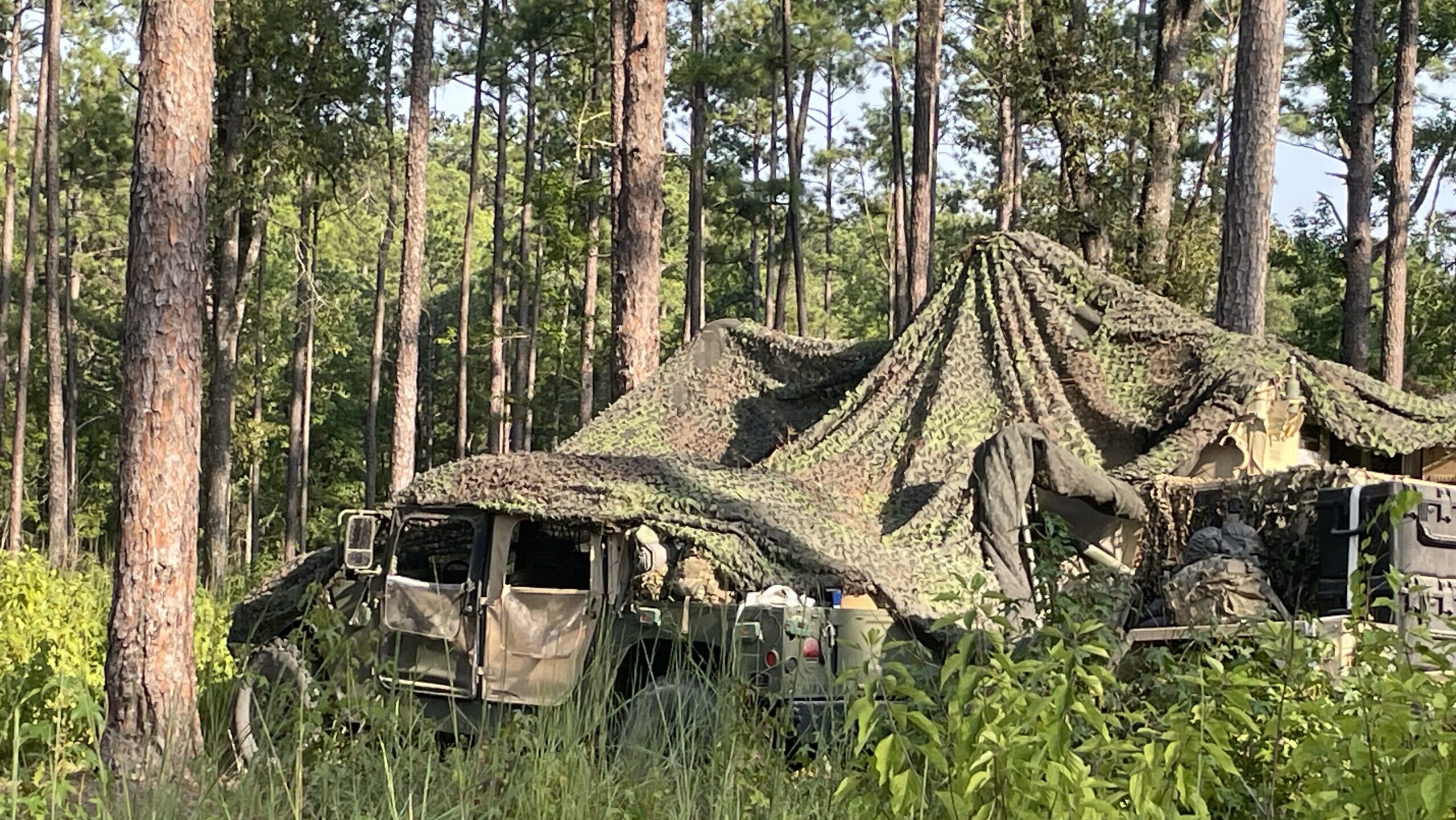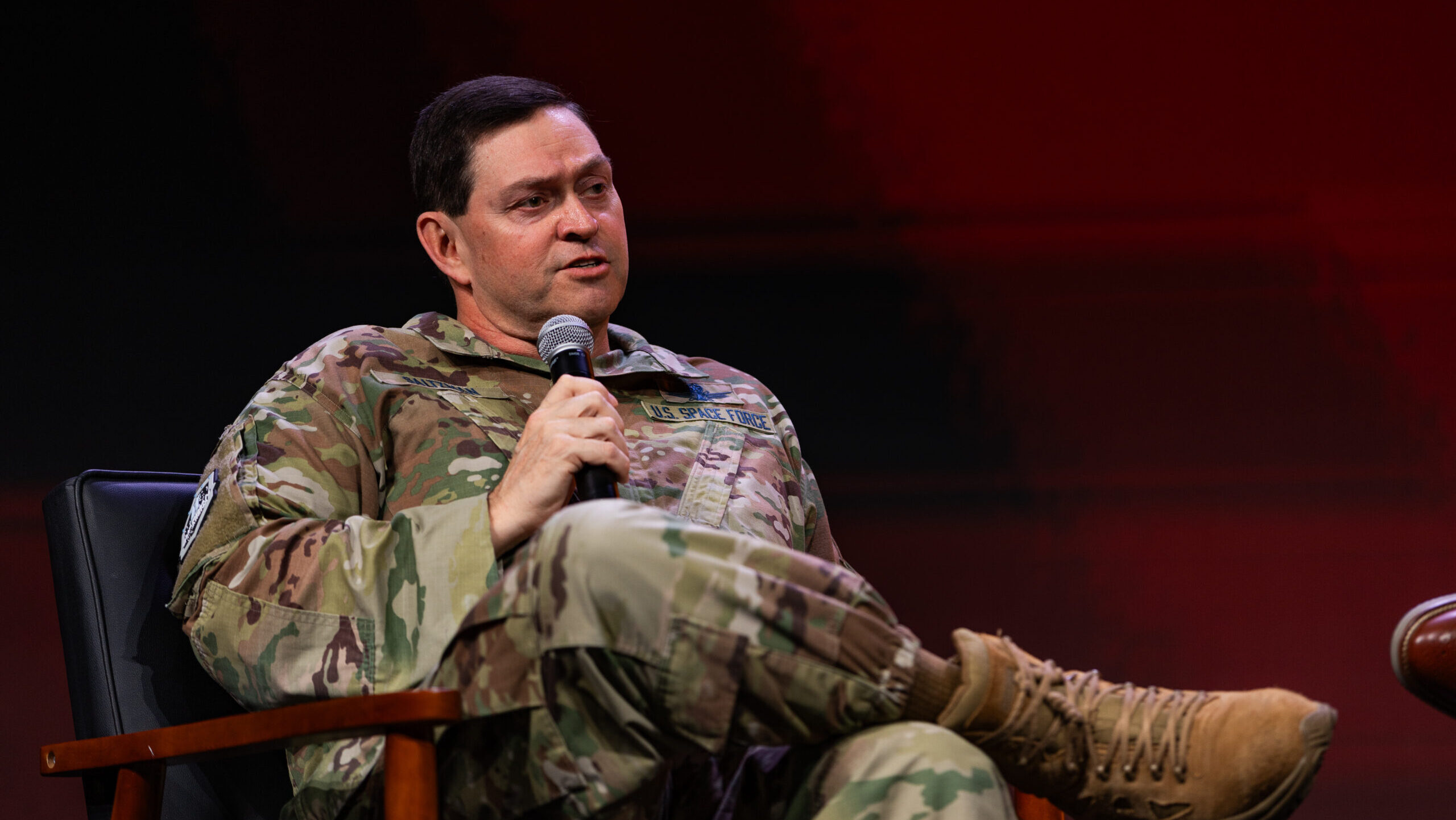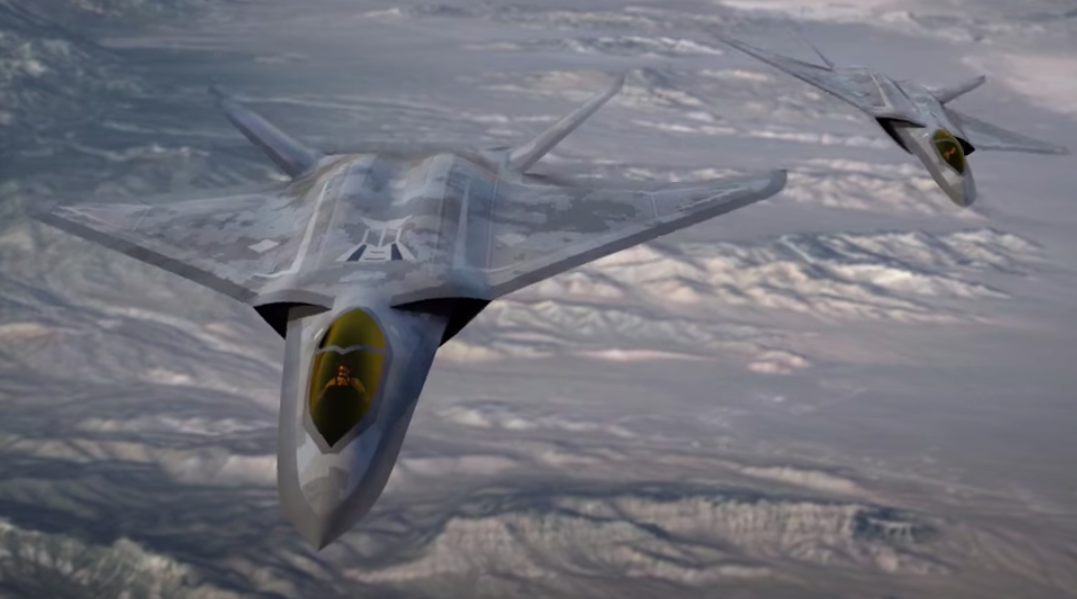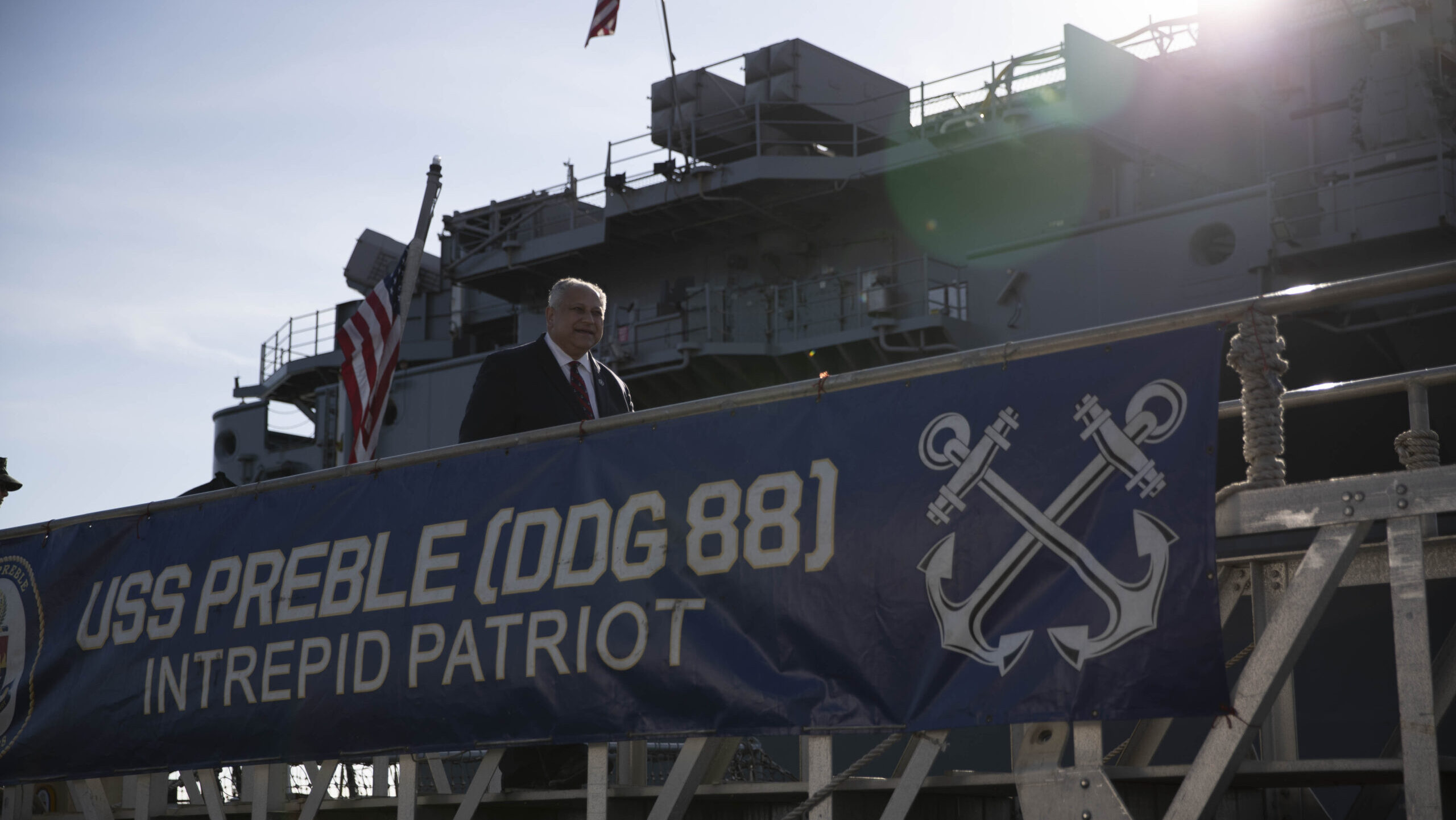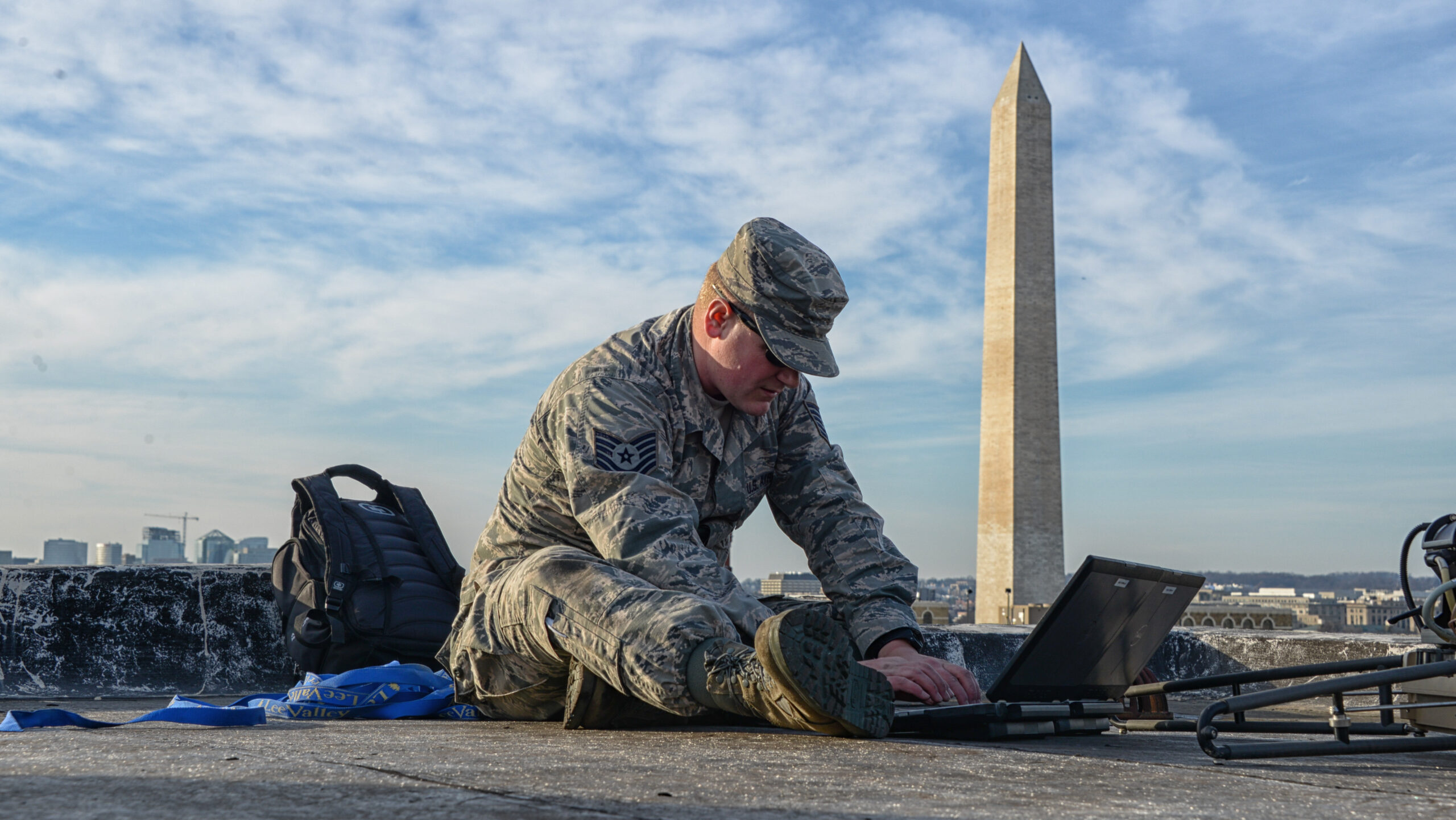USCENTCOM seizes Iranian advanced conventional weapons. On Jan. 10, 2024, a dhow was identified, and an assessment was made that the dhow was in the process of smuggling. (US Central Command Public Affairs Courtesy Photo)
WASHINGTON — The Houthi rebel group that the US says is responsible for lobbing missile after missile and drone after drone at shipping targets in the Red Sea is receiving military support from beyond Iran, its traditional regional backer, leading to a far more “complex” deterrence mission, according to the head of US 5th Fleet.
Asked about Tehran’s link to the Yemen-based group, Vice Admiral George M. Wikoff said, “We’re not ingoring that.”
“There’s a line of effort right now that continues to look at all supply coming into the Houthis and … we don’t believe is necessarily limited to the Iranians,” he said in a webinar hosted by the Center for International and Strategic Studies on Wednesday. “The Iranians certainly back the Houthis, but the Houthis are diversifying.”
Wikoff suggested that in addition to murkier supply lines, the Houthis have developed their own offensive capabilities to the point where “there’s discussion that they could [be] becoming exporters of technology.”
RELATED: 65 countries affected by Houthi attacks in Red Sea, including Iran, US intelligence says
Compared to decade ago, he said, the Houthis have “developed … far beyond the ways we used to look at the Houthis being supplied.”
“We do believe that the overall supply of the Houthis is far more complex” than when Wikoff first came to the region back then.
Wikoff, a former naval avaitor and TOPGUN trainer, stopped short of saying who, exactly, the new suppliers for the rebel group were. In recent weeks media reports alleged that Russia had considered aiding the group but backed off under US and Saudi Arabian pressure.
Waiting Patiently For Policymakers
That the Houthis’ arsenal is more formidable than a decade ago has made the US mission in the Red Sea that much more perilous, Wikoff said, praising the sailors who he said have performed excellently in the face of constant danger.
But the misison itself, as he described it, is a bit of an awkward one. While US and UK strikes on Houthi targets in Yemen have certainly “degraded” the Houthis, they have not fully deterred them from wreaking havoc, as evidenced by recent attacks, Wikoff said.
OPINION: How to counter the Houthi threat at sea
That’s because US policymakers and the international community have yet to find a solution to the long-term problem of Houthi-led instability — a problem with which Wikoff sympathized.
“The challenge of the deterrence is, you have to have a center of gravity to hold at risk,” he said, suggesting the rebel group is too dispersed, relative to a nation-state, and that the history of Yemen is one fraught with naive military adventures. “So trying to apply a classic deterrence policy in this particular scenario is a bit challenging.”
Sailors assigned to the Arleigh Burke-class guided-missile destroyer USS Carney (DDG 64) stand watch in the ship’s Combat Information Center during an operation to defeat a combination of Houthi missiles and unmanned aerial vehicles, Oct. 19. (US Navy photo by Mass Communication Specialist 2nd Class Aaron Lau)
That’s left the Navy, for now, to play the role of a “shock absorber,” Wikoff said.
“[Our] mission remains to disrupt their ability and to try to preserve some semblance of maritime order while we give an opportunity for policy to be developed against the Houthis,” he said. “So right now, the idea is to continue to maintain that decision-space, try to preserve where we are right now to allow other levers of government, other levers of the international community to pressurize the Houthis to stop what they’re doing in the maritime.”
There’s always, of course, the Pentagon’s beloved motto that the enemy gets a vote. In this case, Wikoff said it could be one for peace.
“It’s the Houthis’ choice,” he said. “I mean, they can stop this any day they want, terrorizing the maritime. That’s something that they can stop.”


